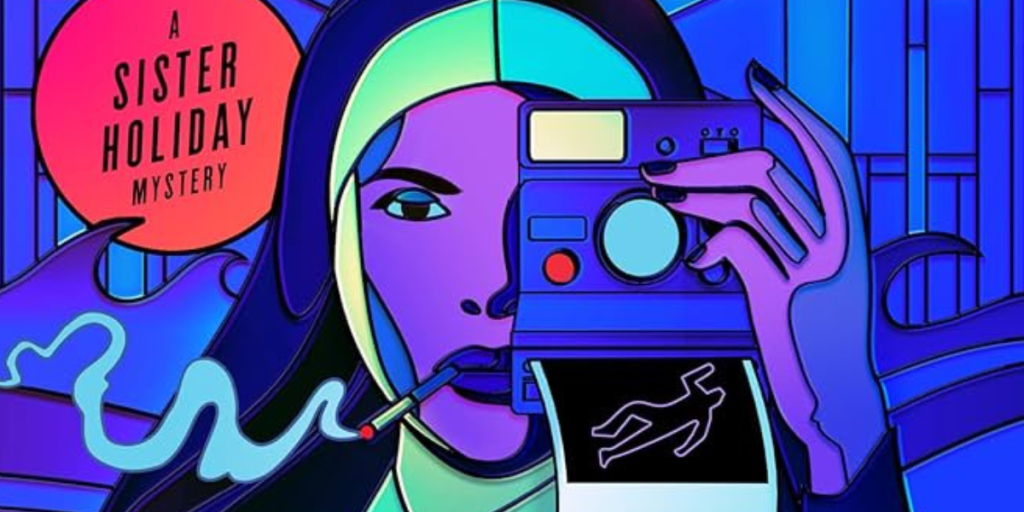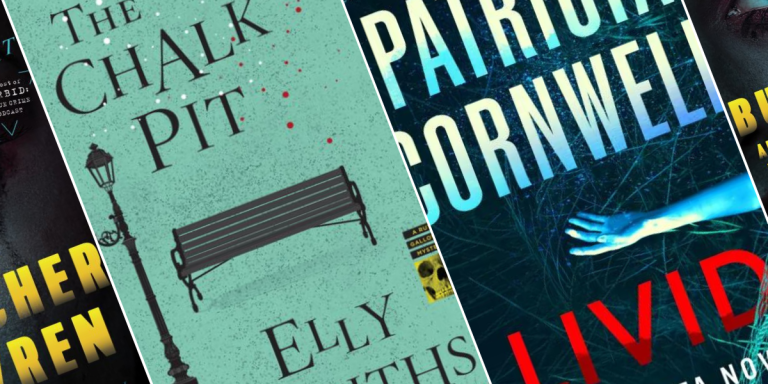The Subversive Power of High Camp in Hardboiled Mysteries

In her seminal essay “Notes on ‘Camp,'” Susan Sontag explores the essence of Camp as a sensibility of artifice, high style, and theatricality, elements that form a mode of speculation and offer a nuanced commentary on society. High camp revels in excess; it turns the mundane into the spectacular. It can serve as a vital mirror to the contradictions and complexities of social mores and cultural “norms.” It’s also really fun.
At first blush, high camp might seem to be at odds with the hardboiled mystery genre’s intense style and hardnosed, wisecracking tone. The lineage of hardboiled—from the canonical works of Raymond Chandler, Chester Himes, and Dashiell Hammett, to neo-hardboiled authors like Sara Paretsky, Sue Grafton, Walter Mosley, and J.M. Redmann—showcases a continuum of scrappy PIs, mean streets, twisted alliances, vice, and warped virtue. These stories begin with the premise that the world is inherently broken, but it’s still worth the fight. Even for a brief moment. Even for a client who doesn’t pay. If noir is thematic (the abyss, no way out, complete distrust), hardboiled is typified by voice-driven narratives where dark alleys and smoky offices serve as arenas for moral confrontations. It’s in this tenebrous territory that high camp also finds fertile ground to critique societal and reader expectations. After all, what’s more deliciously extreme than a badass queer nun solving mysteries in steamy New Orleans?
When I set out to write my Sister Holiday mysteries, Scorched Grace and Blessed Water, I knew I wanted to honor and subvert hardboiled tropes. By infusing gritty, violent tales with lyricism, dark humor, queer theory, and high camp, I aimed to create a high-voltage reading experience that would immerse, provoke, and keep readers guessing until the very end.
From the first pages of Blessed Water, Sister Holiday’s distinct punk aesthetic and singular narrative voice set an irreverent tone: “Cheating death on Easter. Classic.” You’re immediately seized by the sacred and the profane, the humorous and harrowing.
“The known and unknown were locked in an infinite loop, a duet, a song that made me cry for no damn reason. Everything worthwhile — prayer, sex, memory — fuses knowing and not knowing. But I still needed answers.”
Blessed Water
Throughout the mysteries, I strive to stretch hardboiled tropes into new terrain. For instance, in Scorched Grace, the nuns teach teenagers about “sisters doing it for themselves” via Judith beheading Holofernes. The banter between Holiday and her PI partner Riveaux is scalpel-sharp, always laced with double entendres. In Blessed Water, when discussing the missing priest, Father Nathan, Riveaux quips, “Was he the old guy’s enemy or a Reese mini-me? Junior Reese in training? One of Reese’s pieces?” My goal for lines like these: To be both funny and slyly thought-provoking, hinting at deeper, more horrific, and more appalling possibilities.
Paying homage to genre conventions while skewering norms with highly stylized characters creates a funhouse mirror effect, distorting expectations in a way that invites readers to question the very assumptions underlying tropes. This juxtaposition creates a space where the narrative can engage in a dialogue with itself and with the reader. At the same time, the hardboiled bones of the story—a grizzly murder that incites the mystery, a ticking clock of punishing rain, and the hunt for a killer—should keep readers locked in, compulsively scanning for clues. It’s a tricky balance, to be sure. Not enough blood or raw pain makes the enterprise feel frivolous. Too much arch irony risks undercutting the stakes and stinging of inauthenticity. The work has to feel authentic. Weird—yes—but emotionally true to itself. When you get the alchemy just right, high camp and hardboiled can make for a wickedly effective dialectic. A heightened style allows for stinging social commentary, while a relentless pace propels you through a maze of revelations and reversals. With methods like these, and my endless love of hardboiled, I hope to craft stories that are deeply entertaining, unpredictable, and strangely subversive, like gold-toothed Sister Holiday herself.
About the Author
Margot Douaihy serves as an Assistant Professor at Emerson College. She is the author of the queer crime novel Scorched Grace (Gillian Flynn Books), which was named a best crime novel of 2023 by The New York Times, The Guardian, CrimeReads, Apple Books, BookPage, and Marie Claire, among others. Scorched Grace won the Pinckley Prize for Best Crime Fiction Debut, and is a finalist for the International Thriller Writers Best First Novel. Her second mystery, Blessed Water, was named a most anticipated mystery by Barnes & Noble and Book Riot.
Tattooed from her neck to her toes and sporting a gold tooth as sharp as her wisecracks, Sister Holiday struggles to stay on the righteous path. Never one to make things easy for herself, she’s committed to taking her permanent vows with the Sisters of the Sublime Blood and joining former fire inspector Magnolia Riveaux’s latest venture, Redemption Detective Agency—both in service of satisfying her eternal quest for answers.
When Sister Holiday and Riveaux set out to bust a philandering husband, they instead find the body of a priest floating in the swollen Mississippi River, and with it, Redemption’s next case. It’s significantly more gruesome than their original mission, but Sister Holiday feels called on by God to hunt down the murderer and keep her community safe.
As a torrential rainstorm drowns New Orleans for three harrowing days over Easter weekend, Sister Holiday and Riveaux follow the clues. With the stakes rising alongside the relentless floodwaters, our favorite punk nun-sleuth throws herself into the deep end yet again.
By clicking 'Sign Up,' I acknowledge that I have read and agree to Hachette Book Group’s Privacy Policy and Terms of Use


